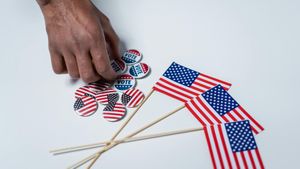Authorities are ramping up enforcement against illegal firearms possession, leading to increased federal sentencing for offenders. Recent statistics from the Bureau of Justice Statistics show alarming trends. Reports indicate more offenders are facing lengthy prison terms under federal statutes. This uptick coincides with heightened concerns over gun violence across the United States.
Federal prosecutors are adopting stricter approaches toward illegal firearms cases, leveraging existing laws to impose harsher penalties. The parameters for what constitutes illegal possession have evolved, encompassing not just convicted felons but also individuals facing drug charges and those violating domestic violence restraining orders. This outlines how federal authorities are narrowing the scope of who can legally possess firearms.
Areas hardest hit by gun violence are seeing the brunt of this enforcement surge. For example, cities like Chicago and Philadelphia have drawn significant attention, as local leaders push for accountability amid rising crime rates. "We need to send a message," said U.S. Attorney for the Northern District of Illinois, John Lausch. "Those who illegally possess firearms will face serious consequences, and we mean business."
The Biden administration has also made moves to address gun safety, emphasizing crackdowns on illegal firearms. Their strategy includes bolstered support for local law enforcement alongside increased funding to fight crime. This initiative reflects widespread bipartisan concern for public safety, demonstrating the need for action against illegal firearm possession.
It's not just the severity of sentencing that's raising eyebrows. Federal judges have also come under scrutiny for how they enforce these laws. The disparity between sentences for similar offenses can vary greatly from case to case. Critics argue this can lead to inconsistency, particularly within communities of color, where the legal repercussions of gun possession can differ widely based on one’s socio-economic background.
Public opinion appears to be shifting, as recent surveys suggest more Americans support tougher laws surrounding gun ownership. Victims of gun violence have staunchly advocated for legislative changes to improve the regulation of firearms. The push often focuses on promoting stricter background checks and identifying loopholes within current gun laws.
Demands for accountability have sometimes spurred community-based initiatives, aimed at curtailing gun violence from the ground up. Grassroots organizations have partnered with law enforcement to tackle illegal firearm possession through educational programs, outreach, and support services. These movements focus on building safer communities through collaboration, hoping to bridge the gap between police and the public.
Analyzing these developments sheds light on the growing urgency surrounding gun violence. Many believe addressing the issue requires more than just punitive measures. Academic research indicates enforcement needs to be paired with educational initiatives on safe firearm handling and mental health resources to give individuals the support they need.
Overall, the interplay between the legal system, law enforcement, and communities is reshaping the narrative around gun violence and illegal firearms possession. There's no denying the stakes are high—federally enforced laws are geared toward reducing access to weapons, but meaningful solutions demand comprehensive strategies beyond just sentencing.



